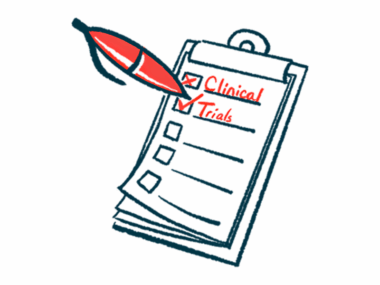Phase 2 AB-1005 gene therapy trial for Parkinson’s starts recruiting
Study seeks patients on medication who have motor fluctuations
Written by |
A Phase 2 clinical study of AB-1005 (AAV2-GDNF), an experimental gene therapy AskBio is developing for Parkinson’s disease, is recruiting patients who are experiencing motor fluctuations despite being on a stable medication regimen for at least a month.
Called REGENERATE-PD (NCT06285643), the study aims to enroll 87 adults with moderate Parkinson’s, ages 45 to 75, who will be randomly assigned to receive a single dose of AB-1005 injected directly into both sides of the putamen — a brain region involved in motor control — or a sham (control) surgical procedure.
The study’s main goal is to watch for changes in motor fluctuations over 18 months, based on patients’ diary entries. For now, only one site in Kansas is recruiting patients, but more sites are expected to open across the U.S. and Europe.
In a Phase 1 clinical study (NCT04167540), AB-1005 was well tolerated, with no serious side effects reported in a small group of patients with mild to moderate Parkinson’s. AB-1005 also eased motor symptoms or prevented them from worsening over time.
“We are excited to be progressing AB-1005 to this larger, Phase 2 study,” Krystof Bankiewicz, MD, PhD, AskBio’s scientific chair of Parkinson’s and multiple system atrophy, said in a company press release. AskBio, short for Asklepios BioPharmaceutical, is a wholly owned subsidiary of Bayer.
‘Significant milestone’ for gene therapy development
“The advancement of AB-1005 is a significant milestone in the development of a gene therapy for Parkinson’s disease and has the potential to bring an effective treatment one step closer to patients,” said Alan Whone, MD, PhD, a consultant senior lecturer in movement disorders at the University of Bristol in the U.K.
Whone, who also works as an honorary consultant neurologist with North Bristol NHS Trust, will take on the role of European lead principal investigator for REGENERATE-PD once the study launches in the U.K.
Motor symptoms of Parkinson’s occur when the brain cells that produce dopamine, called dopaminergic neurons, gradually stop working and die. Dopamine is a signaling chemical involved in the control of voluntary movements. A shortage of dopamine may result in slowed movements, tremors, stiffness, and difficulty with balance.
Levodopa, the gold standard for Parkinson’s therapy, provides the body with a chemical building block that can be converted into dopamine, easing motor symptoms. As Parkinson’s progresses, however, patients may not respond to levodopa as well.
Motor fluctuations, also known as on-off times, may occur in the time window between two doses of levodopa. On time refers to periods when levodopa is working and symptoms are controlled, whereas off time refers to periods when the effect of levodopa wears off and motor symptoms reappear.
AB-1005 is designed to deliver a working copy of the gene encoding GDNF, a small protein, to brain cells. The working gene is packaged aboard a delivery vehicle derived from a virus called adeno-associated virus 2 (AAV2), which is harmless to humans.
Given as an MRI-guided injection into the putamen, AB-1005 heads toward brain cells, where the working gene is unloaded. Brain cells then use it to make GDNF on their own. GDNF supports the growth and survival and differentiation of dopaminergic neurons. AB-1005 is expected to rescue nerve cells lost in Parkinson’s and ease motor symptoms.
“By enhancing levels of a naturally occurring growth factor, glial cell line-derived neurotrophic factor (GDNF) gene therapy is intended to promote the survival and functioning of vulnerable brain cells that degenerate in Parkinson’s disease,” Whone said.
AskBio is also testing AB-1005 for multiple system atrophy, a form of atypical parkinsonism that can cause many of the motor symptoms of Parkinson’s, in a Phase 1 clinical study (NCT04680065) that is currently enrolling patients in the U.S.



